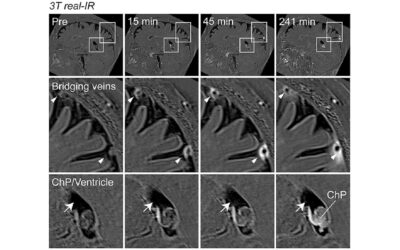
By Kelly Bilodeau
Looking for clues about the health of your brain? You might want to pay a visit to your eye doctor. Research increasingly links common eye conditions – glaucoma, age-related macular degeneration and diabetic retinopathy – to risk for Alzheimer’s and other forms of dementia.
What’s interesting about the study results, says Albert Hofman, M.D., Ph.D., chair of epidemiology at the Harvard T.H. Chan School of Public Health, is that cataracts, another common age-related eye condition, had no apparent connection to dementia risk. This gives scientists an important clue about the cause of dementia and Alzheimer’s disease, he says.
“My view, and one of the possible explanations that the authors present, is that these three eye diseases and Alzheimer’s and dementia have a joined etiology” – that is, a common causative factor. “All are linked to cardiovascular disease,” says Hofman.
How are eye conditions linked with cardiovascular disease?
Glaucoma is a condition marked by increased pressure in the eye that can lead to vision loss. It has been linked to high blood pressure, diabetes and poor blood circulation.
Age-related macular degeneration involves breakdown of the macula, the part of the retina responsible for sharp central vision. It has also been linked to heart disease.
Diabetic retinopathy occurs in people with diabetes when high levels of blood sugar damage blood vessels in the retina. There are strong links between diabetes and cardiovascular problems.
Cataracts – clouding of the lenses of the eyes – are more likely to develop as people age. However, they don’t appear to increase the risk of cardiovascular disease, Alzheimer’s disease or other types of dementia.
Eyes on Alzheimer’s
The “Adult Changes in Thought” study, which began in 1994, included 5,400 dementia-free adults. Participants were followed until they decided to leave the study, died or developed dementia. Research published in Alzheimer’s & Dementia in 2019 analyzed data drawn from the “Adult Changes in Thought” study. This time, the researchers focused on 3,800 of those participants, both with and without eye disease at the start of the study. Some 792 of them went on to develop dementia.
Study authors found that people with age-related macular degeneration were 20% more likely to develop dementia compared with people who did not have the eye disease. People with diabetic retinopathy were 44% more likely to develop dementia than those without. People in the study with a recent glaucoma diagnosis – but not participants with established disease – had a 44% higher rate of dementia. It’s not clear why there was a difference between people with new or existing disease.
Can eye exams be used to predict – and better still, prevent – Alzheimer’s?
While these findings show a link between three eye diseases and brain risks, one important question remains: what does this information mean for you? Can an eye exam tell you if you are destined to develop dementia in the future? More importantly, can it help you prevent it?
Someday the answer to those questions may be yes. For now, however, eye exams are valuable in detecting eye disease early so it can be treated – but they can’t yet yield much predictive information about your brain’s future health, says Hofman.
But there are lessons we can take from the study when it comes to avoiding Alzheimer’s disease. Today the only known way to prevent Alzheimer’s and other forms of dementia is to prevent cardiovascular disease.
“Doing all the things that you would do to prevent heart attack and stroke are likely beneficial to prevent Alzheimer’s disease,” says Hofman. This means treating high blood pressure and cholesterol, eating a healthy diet, getting enough sleep and maintaining a regular exercise program.
If you have a family history of cardiovascular disease or a history of cardiovascular-related eye diseases, you may want to be even more aggressive in controlling your personal risk factors, says Hofman.
Kelly Bilodeau is executive editor at Harvard Women’s Health Watch.








